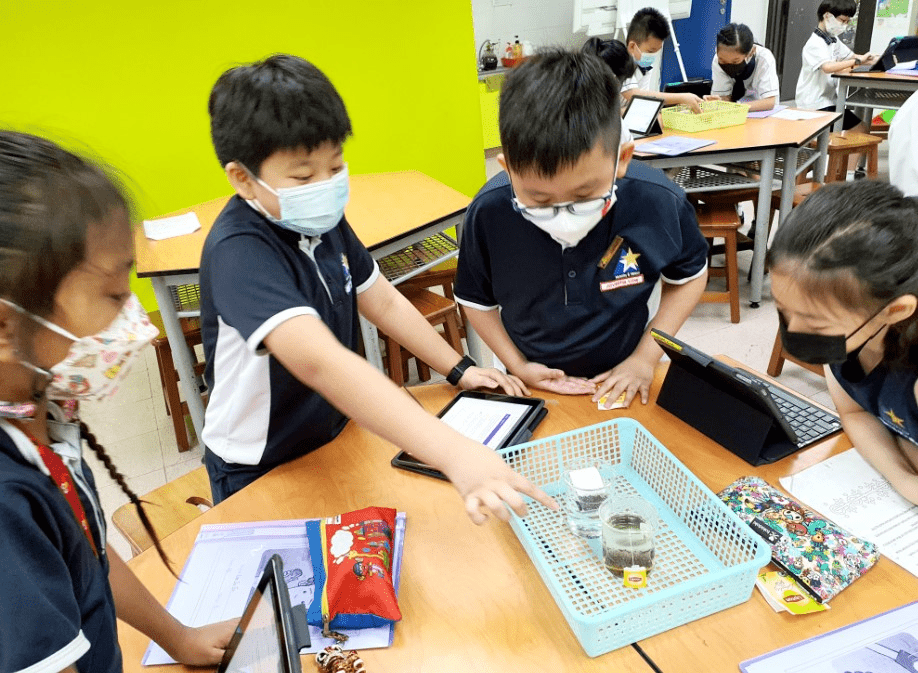Stretching our Young Minds
Stretching our Young Minds

In North View Primary, we have programmes to stretch our students such as the Creative Writing and E2K programmes.
Creative Writing Programme
The English Language Department’s Creative Writing Programme is conducted to hone the writing skills of verbally-talented Primary 4 and 5 student writers. Students who have been selected for the programme possess strong language skills and the ability to easily understand the creative uses of language. The Creative Writing Programme aims to enhance the literacy understanding of the student writers and improve their writing craft through exposure to creative writing.
Teachers conducting the programme develop the student writers’ observation, description and analytical skills, as well as cultivate in them a critical awareness of literary techniques and craftsmanship. During the programme, the student writers are introduced to the styles and traditions of both prose and poetry through the application of critical and theoretical approaches to the reading and analysis of literary texts. As they get acquainted with imaginative writing in prose and poetry, they not only engage in wordplay to express their thoughts, ideas and feelings, but also acquire habits of mind essential to their growth as critical and creative writers. By the end of the programme, student writers will have put together a portfolio comprising of writing pieces that show his or her authentic voice, flexible and original crafting of ideas and thoughtful self-reflection.
By providing an opportunity to meet and collaborate with like-minded schoolmates who are also passionate about writing, the programme ultimately aims to build a community of inquiry among peers and motivate them to pursue their interest in writing.
E2K Science Enrichment
This year, we started the E2K Science enrichment programme for selected Primary 4 students who have shown interest and ability in Science.
The programme aims to:
• develop scientific inquiry process skills among high-ability learners
• nurture 21st century competencies such as resilience and resourcefulness, critical and inventive thinking, and effective communication skills
During the programme, students learn Science by going through the same process that scientists use to generate knowledge in Science. Just as scientists make mistakes in the real world, pupils are allowed to make mistakes in E2K and teachers help students to learn from the mistakes. The sessions emphasise scientific experiments, while gradually developing the students’ ability to plan, conduct and analyze open discovery experiments.
The students are intrigued by the variety of topics related to the phenomena that they encountered in their daily lives. In each session, the students performed experiments at increasing level of openness and used a range of tools such as background stories, performance tasks, riddles, games and discussion & brainstorming and reflections. The students went through a fascinating journey on the path of creative scientific investigation.
Through collaborative learning and guidance provided by the teacher, students practice scientific thinking and reasoning, develop confidence and independence in carrying out scientific inquiry as well as scientific habits, attitudes, and dispositions.
E2K Math Enrichment
The Excellence 2000 (E2K) Mathematics Programme is a Mathematics enrichment programme for Primary 4 and Primary 5 pupils who demonstrate interest and ability in Mathematics. It aims to develop students’ mathematical reasoning skills and deepens their conceptual understanding through an inquiry approach.
Students had the opportunities to work independently or collaborate with their peers and engage in mathematical thinking through resources such as puzzles, games and mathematical explorations specially designed for this programme. During the programme, students were taught to see mistakes they make as a learning process. When they made mistakes, they were encouraged to persevere and look for alternative solutions or to improve on their solutions and discover their own mistakes. After students have found a solution to a problem, they would also be encouraged to think of alternative solutions to solve the same problem. Teachers would then select a few students to present their solutions to other students. Students were the ones leading the discussions and teachers being the facilitators.
The rich learning experiences offered by the programme serve to help students to develop the habits, attitudes and dispositions mathematicians possess, as well as to gain important 21st century competencies such as critical thinking, invention thinking and effective communication skills.

